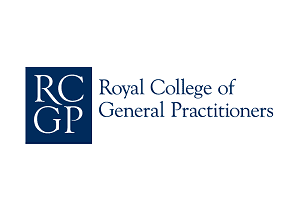When considering a hair transplant, it’s crucial to have a thorough consultation with your surgeon. This consultation serves as an opportunity to gather all the necessary information about the procedure, understand the surgeon’s experience and expertise, and ensure that you have realistic expectations about the results. To make the most of your consultation, here are some essential questions to ask your hair transplant surgeon:
-
What is your experience in performing hair transplant surgeries?
It’s crucial to know about your surgeon’s experience, including the number of years they’ve been performing hair transplants and the amount of procedures they’ve completed. Asking about their qualifications and training can also provide you with a better understanding of their expertise in the field.
-
Can I see before and after photos of previous patients?
Reviewing before and after photos of previous patients can give you an idea of the surgeon’s skill and the quality of their work. Look for individuals with similar hair loss patterns or conditions to yours to get a realistic expectation of what you can achieve.
-
What technique do you recommend for my specific case?
There are various hair transplant techniques available, such as Follicular Unit Transplantation (FUT) and Follicular Unit Extraction (FUE). Each technique has its advantages and limitations. Discussing which technique is most suitable for your specific case, based on factors like hair density, donor area, and your goals, will help you make an informed decision.
-
How many grafts will I need, and how will you determine this?
Understanding the number of grafts required for your hair transplant is crucial for planning the procedure and estimating the cost. The surgeon should examine your donor area and evaluate the extent of hair loss to determine the number of grafts needed. This evaluation will help you assess the feasibility of the procedure and the expected outcomes.
-
What is the expected timeline for my recovery and growth?
It’s essential to have a clear understanding of the recovery process after a hair transplant, including the timeline for healing, scab shedding and hair growth. Your surgeon should provide you with detailed information about what to expect in the days, weeks, and months following the procedure.
-
Are there any potential risks or complications associated with the procedure?
Like any surgical procedure, hair transplants carry certain risks. Your surgeon should explain the potential complications, such as infection, scarring, or poor hair growth, and discuss the steps they take to minimise these risks. Understanding the potential drawbacks will help you make an informed decision.
-
What type of anaesthesia will be used, and who will administer it?
Anaesthesia is an integral part of any surgical procedure. Understanding the type of anaesthesia used during your hair transplant and knowing who will administer it can help alleviate any concerns you may have and ensure your comfort during the procedure.
-
What is the cost of the procedure, and are there any additional expenses I should be aware of?
It’s essential to have a clear understanding of the cost of the hair transplant procedure, including any preoperative and postoperative expenses. Inquire about the payment options and whether the cost includes any follow-up visits or potential touch-ups.
-
What postoperative care instructions should I follow?
After a hair transplant, there are specific care instructions you need to follow to ensure optimal healing and hair growth. Ask your surgeon about the postoperative care regimen, including how to clean the transplanted area, what activities to avoid, and any medications you need to take.
-
What are the realistic expectations for the final results?
While hair transplants can provide excellent results, it’s essential to have realistic expectations. Ask your surgeon about the expected outcome, the time it may take to see a noticeable improvement, and any potential limitations based on your specific case.
Remember, a hair transplant is a significant decision, and choosing the right surgeon is crucial. Asking these questions during your consultation will help you make an informed choice and ensure you have a positive experience with your hair transplant procedure.








